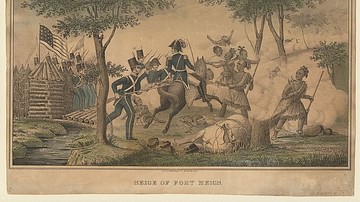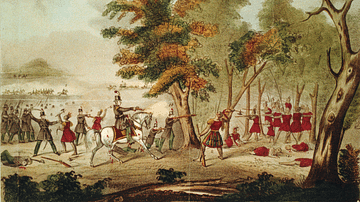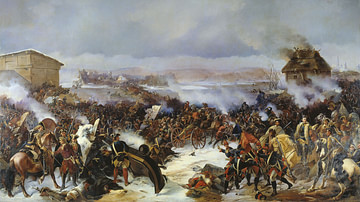Search
Remove Ads
Advertisement
Summary 
Loading AI-generated summary based on World History Encyclopedia articles ...
Search Results

Article
Harrison's Marine Chronometer
John Harrison (1693-1776) invented an accurate marine chronometer after several decades of research and development. While the pendulum clock had already been invented in the 17th century, a clock that could withstand the vagaries of the...

Definition
Peter the Great
Peter I of Russia (Peter the Great) was the Tsar of Russia from 1682-1721 and Emperor of Russia from 1721-1725. During his long reign, Peter had absolute power and brought real change to Russia, including building its first navy, introducing...

Definition
Saint Peter
Saint Peter the Apostle was a well-known figure in early Christianity. Although there is no information on the life of Peter outside the Bible, in the Christian tradition, he is often depicted as the first on many occasions: the first to...

Article
The Grand Embassy of Peter the Great
The Grand Embassy was the name given to the long Western European tour that Tsar Peter I of Russia (aka Peter the Great, r. 1682-1725) undertook during 1697-1698. Peter was joined by hundreds of people, including noblemen, his friends, volunteers...

Article
The Reforms of Peter the Great
Peter I of Russia (Peter the Great, l. 1672-1725) was the Tsar of Russia from 1682 to 1721 and the Emperor of Russia from 1721-1725. The lasting impression of Peter's long reign is the significant changes he brought to Russia due to his various...

Article
Siege of Fort Meigs
The Siege of Fort Meigs (28 April to 9 May 1813) was a major engagement on the northwestern frontier of the War of 1812. It saw a US army under Major General William Henry Harrison, holed up in the hastily built Fort Meigs, withstand a siege...

Definition
Science
The term science comes from the Latin word scientia, meaning "knowledge". It can be defined as a systematic attempt to discover, by means of observation and reasoning, particular facts about the world, and to establish laws connecting facts...

Article
Battle of the Thames
The Battle of the Thames (5 October 1813), or the Battle of Moraviantown, was a decisive engagement in the War of 1812, in which a US army under General William Henry Harrison defeated a British and Native American force in Upper Canada...

Definition
Great Northern War
The Great Northern War took place from 1700 to 1721 and was fought between Russia and Sweden during the reign of Peter I of Russia (Peter the Great). One of the key causes of the war was Peter the Great’s desire to have territory on the Baltic...

Definition
Roman Science
The Romans assimilated earlier Greek science for their own purposes, evaluating and then accepting or rejecting that which was most useful, much as they did in other fields such as warfare, art, and theatre. This assimilation of Greek thought...